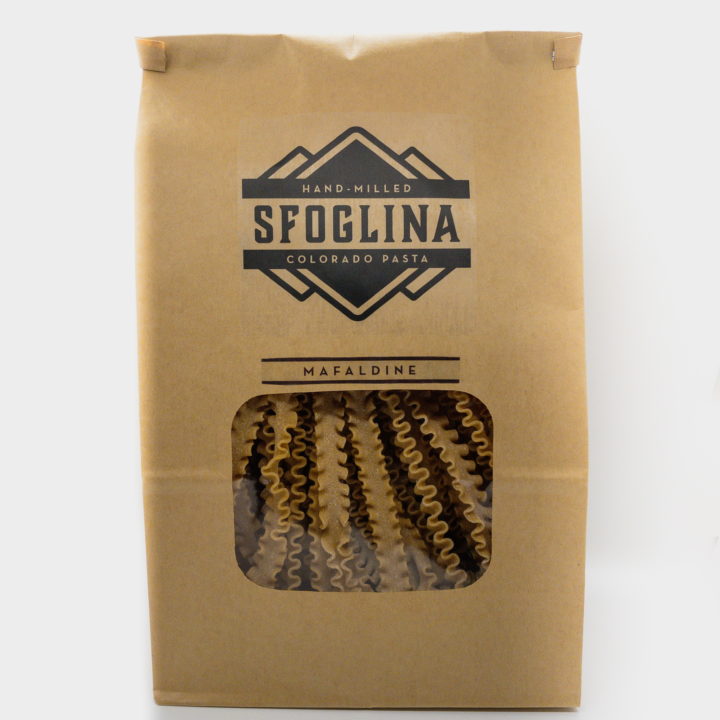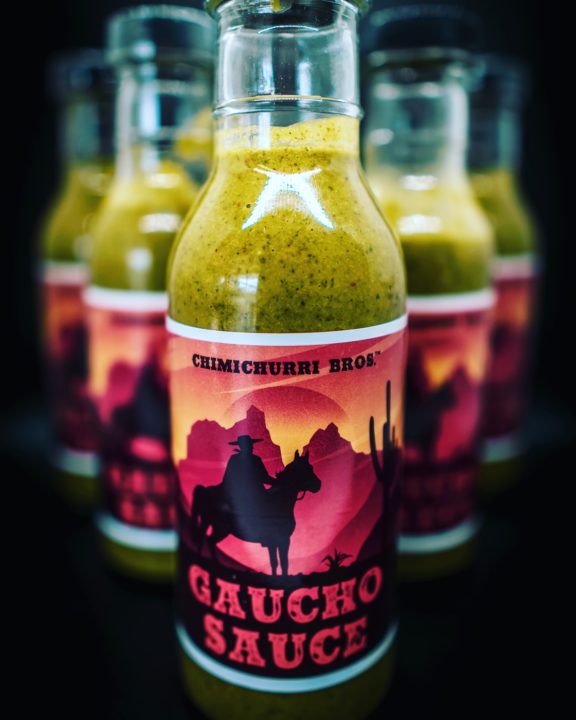The Local newsletter is your free, daily guide to life in Colorado. For locals, by locals. Sign up today!
Virgil Dickerson never imagined he’d purchase 2,000 pounds of cabbage and 800 pounds of daikon radish each month to make kimchi in his home kitchen. But selling jars of his tangy-spicy, fermented Korean condiment via his new company, KREAM Kimchi, turned out to be a dream come true for the former music executive and marketing professional.
Dickerson had certainly made his mom’s stellar kimchi recipe for friends in the past, but he didn’t become a self-professed kimchi dealer until the onset of the coronavirus pandemic in March. His jobs as marketing director for Marble Distilling and city manager for Denver’s Passport Program were on pause then, so Dickerson decided to use the extra time to spread some love by making and giving away jars of kimchi to his friends and acquaintances. “I just kept giving kimchi to people who asked—strangers, friends, people I used to work with,” says Dickerson, who made most of his deliveries by bike or on foot from his Lincoln Park home. “The reaction was mind blowing. It was shocking to me how many people love kimchi.”
The flood of positive feedback led Dickerson, also the owner of a consulting company called KREAM (an acronym for Kimchi Rules Everything Around Me), to start a full-time kimchi business with the same name on August 8—his 45th birthday. “It’s beyond everything I could have imagined. I gave away 500 jars over four months, from the end of March to the end of July, and in August, I sold over 1,000 jars.” Dickerson is now seeking a commercial kitchen, which will allow KREAM to supply products to area markets and restaurants. “I’ve never worked so hard in my life,” he admits. “But I’ve never felt better about anything I’ve ever done.”
Jesse Albertini’s dreams of opening a specialty foods bodega in Denver faded after the coronavirus hit Colorado—until the escalation of the Black Lives Matter protests in June inspired her to shift gears. The chef and pasta maker, who honed her craft in the kitchens at Acorn and Jovanina’s Broken Italian, decided to sell her homemade tortellini and donate the profits to BLM-related charities. “That really woke me up. I thought, ‘I can still do something. It might not be what I thought it would be, but it’s something,’” she says.

So, instead of selling homemade pasta at her own brick-and-mortar shop, Albertini launched Sfoglina (a reference to Italian craftswomen who roll pasta by hand) in August, offering dried mafaldine, casarecce, bucatini, and more for sale online and at farmers’ markets.
To make the pasta, Albertini sources wheat berries from Grains From the Plains in Hugo, Colorado, or Central Milling Co., in Logan, Utah, and hand-mills the grain for a more flavorful, nutrient-dense product. The pasta dough is then extruded through a bronze die into different shapes and dried for up to two days.
Sfoglina ships statewide and donates five percent of all of its profits to charity, an aspect of the business that’s important to Albertini. All donations for the next couple months will go to the Colorado Restaurant Associations’ Angel Relief Fund to help local hospitality workers enduring hardship. Albertini also recently added pasta of the month club, and will eventually nail down a commercial kitchen space. For now, she’s happy to move forward with a pivoted version of her dream, which allows her to be home with her 9-month-old daughter, Adeline.
Chef or Death podcast host Eric Chiappetta chalks up Minga Provisions’ wide-ranging selection of products to boredom. In early April, when his podcast was enduring a pandemic-induced slowdown, he started the company to sell homemade pickles and giardiniera online—and has since expanded the endeavor to include a line of sauces and dressings. “I have a bad habit of getting really excited about something and then, in two months, I’m totally bored with it,” he says.
Chiappetta’s restlessness has paid off. His company went from about 30 orders per day online to selling eight to 10 cases of aromatic Altius Farms basil walnut pesto, crunchy half sour pickles, creamy blue cheese dressing, and garlic-laced marinara at every farmers’ market it attends. In early September, Minga secured a deal with Alfalfa’s Markets and is now on grocery store shelves.
Chiappetta credits his success to all the local relationships he’s made as a 30-year Denver hospitality veteran—and his other habit of saying yes to everything. He urges others who are trying to get businesses off the ground to do the same. “If someone asks you to do something and they want to be a part of what you have, that means there’s some excitement about your brand and what you’re doing,” Chiappetta says. “Just do it. Find a way to pivot, find a way to make something work.”

In the coming weeks, Minga plans to add more sauces, including a vodka cream iteration; pickled red onions; pumpkin and butternut squash soup; and a take on hard shell chocolate sauce. Many of the ideas for the new products originate with customer requests, which Chiappetta is more than happy to fulfill.
After chefs Austin Hume and Forrest Bayne were furloughed from their jobs in March at Sushi Ronin and Vine Street Pub, respectively, a basement hangout inspired an idea to produce and sell made-from-scratch chimichurri. The duo pooled their stimulus checks to get Chimichurri Bros. off the ground, perfecting the recipe for their herbaceous Gaucho Sauce after more than 75 tries.
Hume and Bayne posted wanted ads for blenders on neighborhood site Nextdoor, and killed eight of the appliances making sauce before purchasing a Vitamix this month. Chimichurri Bros. now slings 200 to 300 bottles of its exquisitely balanced, lemon-tinged sauce every week at four farmers’ markets and a weekend pop-up restaurant at Vine Street Pub. “Friday through Sunday, we don’t sleep,” Bayne says.

Despite the impressive volume of sales, all of the prep work for Chimichurri Bros.’ is done by hand. Hume and Bayne spend hours juicing 30-pound boxes of lemons and limes, peeling garlic and shallots, and skinning bushels of roasted peppers for a Hatch chile-infused version of their Gaucho Sauce. Due to the success of a seasonal Palisade peach chimichurri, they’re excited to release more rotating flavors this fall and winter, including apple-sage with brown butter, butternut squash, and broccoli. “It went from us making chimichurri in my basement to having a commissary to pop-up restaurants and farmers’ markets. In the last four months, it’s been crazy,” Hume says.
While Hume still works a few hours each week Sushi Ronin, he and Bayne hope the sauces will become a full-time gig. They’re working on a website, printing nutritional labels, and getting on local grocery store shelves. And soon, Chimichurri Bros. hopes to make another big purchase: an electric citrus juicer.
Get KREAM Kimchi ($12.99 for a 32-ounce jar of the traditional or vegan variety) delivered for a $4.99 fee; pick up is available from Dickerson’s Lincoln Park home. Also find it at the Penn Street Farmers’ Market at Uncle West Wash Park and the NT Market pop-up at Fort Greene Bar (October 3 and 4). Not sure what to do with kimchi? Find recipes here.
Order Sfoglina pasta ($9–10 for a 12-ounce bag) online or look for Albertini’s booth at the Penn Street Farmers’ Market at Uncle West Wash Park and at Christmas markets come wintertime.
Purchase Minga Provisions products ($10–15) online and at farmers’ markets, including Sloan’s Lake, the Golden Triangle, and Belleview Station. Select products are also available at local Alfalfa’s Markets.
Find Chimichurri Bros. Gaucho Sauce ($7 for a 12-ounce bottle) at farmers’ markets, including Penn Street at Uncle West Wash Park, Westward Chiropractic on Santa Fe, and Belleview Station. Hume and Bayne also host a pop-up offering burgers, sandwiches, and more featuring the chimichurri at Vine Street Pub (Friday–Sunday, 2–7 p.m.).








